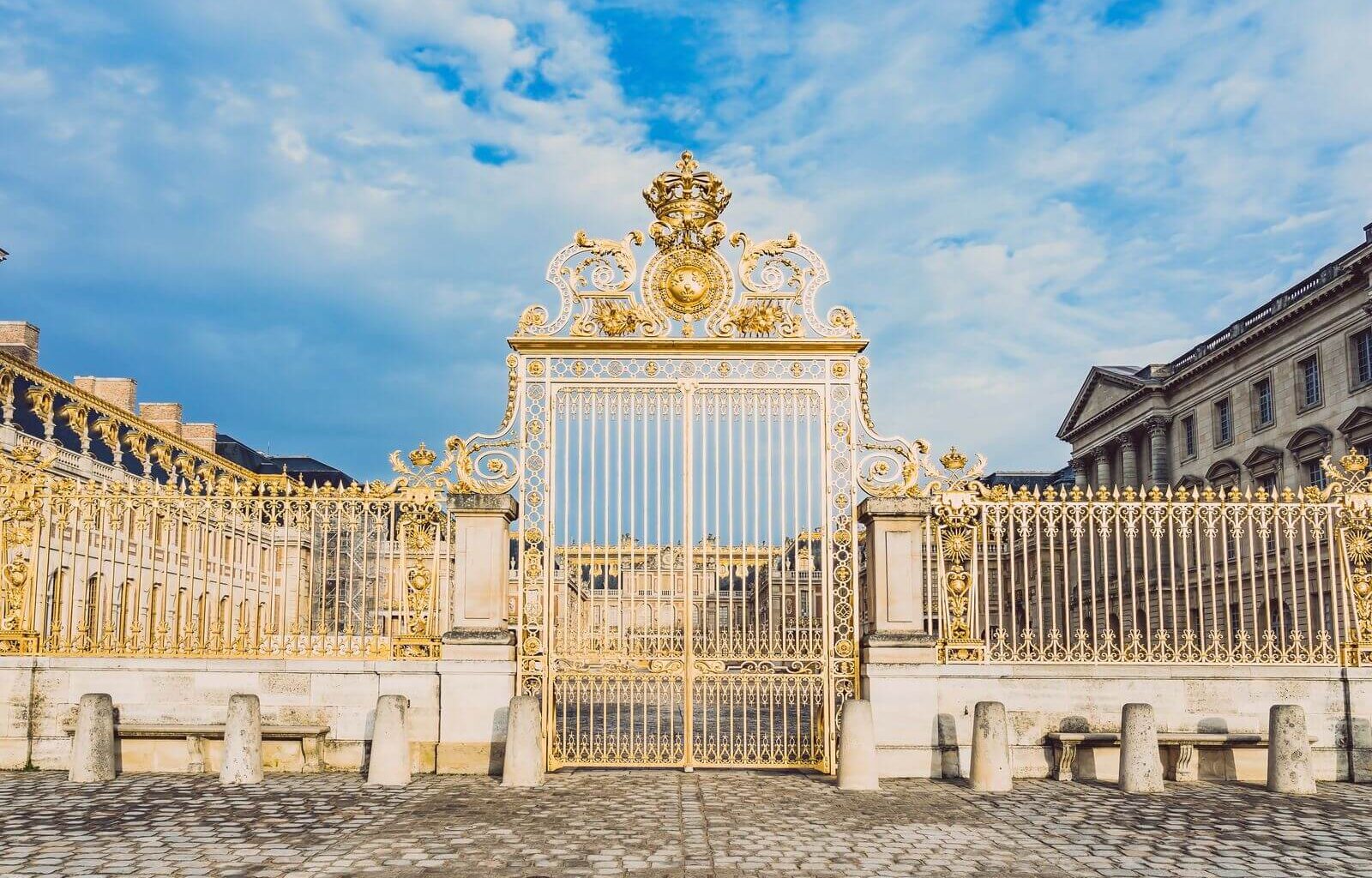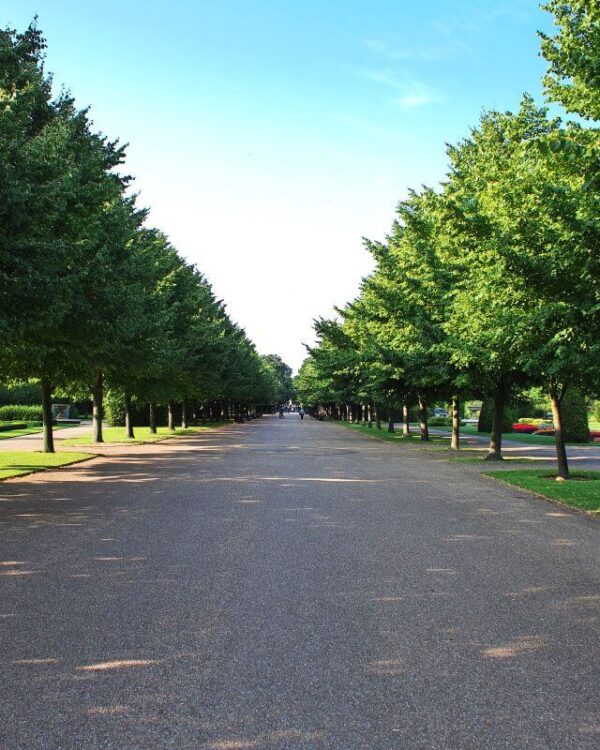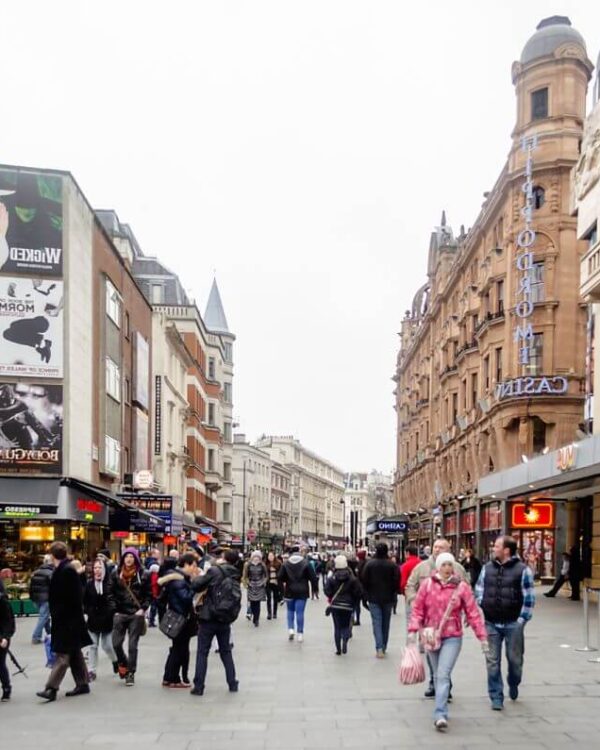Palace of Versailles History
The Palace of Versailles is a royal château in the Île-de-France region of France. It began as a small hunting lodge built by Louis XIII in 1623, but was transformed into a massive palace by his successor, Louis XIV. During the 18th century, the palace became a symbol of the absolute monarchy of the Ancien Régime, and was often used as a venue for lavish parties and celebrations. After the French Revolution, the palace was turned into a museum, and today it is one of the most popular tourist destinations in France.
Inside the Versailles Palace: The Hall of Mirrors
The Hall of Mirrors is undoubtedly the most famous room in the palace. Located within the grounds of the Palace of Versailles, the Mirror Hall is a breathtaking space notable for its large size and ornate decor. With soaring, decorative columns and mirrored walls that reflect light from the dozens of crystal chandeliers dotting the room, this grand hall dominates one end of the Palace’s main courtyard. Due to its exceptional beauty and elegance, the Mirror Hall has long been considered one of Versailles’ most stunning attractions.
The Royal Chapel
The Royal Chapel is another must-see spot in the Palace of Versailles. This beautiful baroque church is home to some stunning artwork and a gorgeous chandelier that has become one of the most iconic symbols of French royalty. Located at the heart of the massive palace complex, the towering chapel was built in 1710 under the direction of Louis XIV. Beautifully decorated with ornate tapestries, frescoes, and sculptures, this exquisite sacred space is a true masterpiece of baroque architecture. Its soaring ceilings are painted with scenes, while an elaborate gold altar decorates its center.
The Grand Trianon
The Grand Trianon is another incredible building within the palace grounds. The Grand Trianon is a château located in the western part of the Palace of Versailles. With its grand white facade and manicured gardens, this opulent structure was built for King Louis XIV as a private retreat from the pomp and ceremony of the main palace.
The Gardens of Versailles
The Gardens of Versailles are some of the most iconic in all of France. Located in the town of Versailles, just outside of Paris, the gardens were designed by André Le Nôtre. It spreads over 800 hectares and the gardens feature a variety of different landscapes, including woodlands, weeping willows, flower beds, and fountains.
In addition to being visually stunning, the gardens are also home to a number of important historical monuments, including the Grand Trianon and the Petit Trianon. Today, the Gardens of Versailles attract millions of visitors each year, making them one of the most popular tourist destinations in France.
Petit Trianon
The Petit Trianon is a palace located in France, overlooking the beautiful grounds of the Palace of Versailles. Although small compared to many other palaces and homes in Europe, the Petit Trianon is renowned for its elegant beauty and architectural sophistication. The palace is most famous for its exquisite detailing, including ornate interior features like elaborate fireplaces and intricate carvings on the doors and banisters.
Hamlet Of Marie-Antoinette
The Hamlet of Marie Antoinette is a group of buildings located on the grounds of the Palace of Versailles in France. The hamlet was built at the request of Queen Marie Antoinette, who desired a rural retreat where she could escape the stifling formality of court life. The hamlet includes a farmhouse, a mill, and a number of other buildings, all of which are surrounded by gardens and ponds. Marie Antoinette often entertained guests at the hamlet, and it became a popular destination for fashionable nobility.
State Apartments of the King
Salons were popular among the French nobility in the 17th and 18th centuries. In large palaces like Versailles, there were often multiple salons, each of which served a different purpose. Some salons were used for social gatherings or meetings between nobles, while others served as work spaces.
Each salon was decorated differently, often depending on the purpose of the room and its patron. For example, a salon used to entertain noble guests might be painted with rich colors and detailed murals, while a more utilitarian space might be decorated in simpler colors or include only minimal furnishings.
The Salon of Hercules
Some of the most famous salons in France were located in the palace of Versailles. The Salon of Hercules was one of the largest and most lavish rooms in the palace, used for grand events and state occasions. The Salon of Venus was a smaller space decorated in a more intimate style, often used for private meetings or gatherings.
The Salons of Diana and Apollo
The Salons of Diana and Apollo were two of the most famous workspaces in the palace, where people came to work on important political and artistic projects. Although French nobility had access to many types of work spaces, these salons were especially popular because they allowed people to socialize and work at the same time.
Musical Fountain Show and Musical Gardens
The Musical Fountain in Versailles, France is one of the most impressive and sophisticated musical fountain shows in the world. This magnificent showcase incorporates a variety of water effects, including high-pressure jets, side shooters, swiveling bells, arches with changing water angles, and more. All of these elements are choreographed with breathtaking precision to various musical selections from classical composers. Together, they create a visually stunning spectacle that is truly a feast for the senses.
The Gallery of Battles
The Gallery of Battles at the Palace of Versailles is a series of paintings that chronicle the military exploits of Louis XIV. The gallery was conceived as a way to celebrate the Sun King’s victories and to glorify his role as the Defender of the Faith. Each battle scene is incredibly detailed, depicting different units engaged in combat and the surrounding landscape.
In addition to the paintings, the Gallery also features a collection of weaponry and armor used in various battles. Visitors will be awestruck by the scale and grandeur of the Gallery, and they will come away with a new appreciation for France’s military prowess.
The Ambassador’s Staircase
The Ambassador’s Staircase is one of the most iconic features in the Palace of Versailles. This spectacular, sweeping staircase comprises three grand flights of stairs connected by ornate, interlinking landings with intricate balustrade and decorative ironwork. From its soaring windows to its tall ceilings adorned with ornate gilt detailing, the staircase has a truly regal feel that perfectly captures the opulence and grandeur of this famous French palace.
The Ambassador’s Staircase stands as a testament to the artistic talents of France’s greatest architects and designers, and it continues to draw visitors from all over the world who come to marvel at this masterpiece.
Similar Posts:
- Domaine National du Palais Royal: A Former Royal Residence in Paris
- The Luxembourg Palace in Paris: Exploring Palais du Luxembourg, the Home of the French Senate (Sénat)
- Hampton Court Palace: The Historic Royal Palace in London
- Exploring Chateau de Vincennes near Paris: The Medieval Castle of Château de Vincennes and Its History
- Facts About Palais Garnier: a Famous Opera House in Paris
- Jardin du Luxembourg, Known as Luxembourg Gardens in Paris
- Visit the Buckingham Palace. All You Need to Know About the Top Tourist Attraction in London
- All About Ile de la Cite: Exploring the Sights and Tourist Attractions of Île de la Cité de Paris



